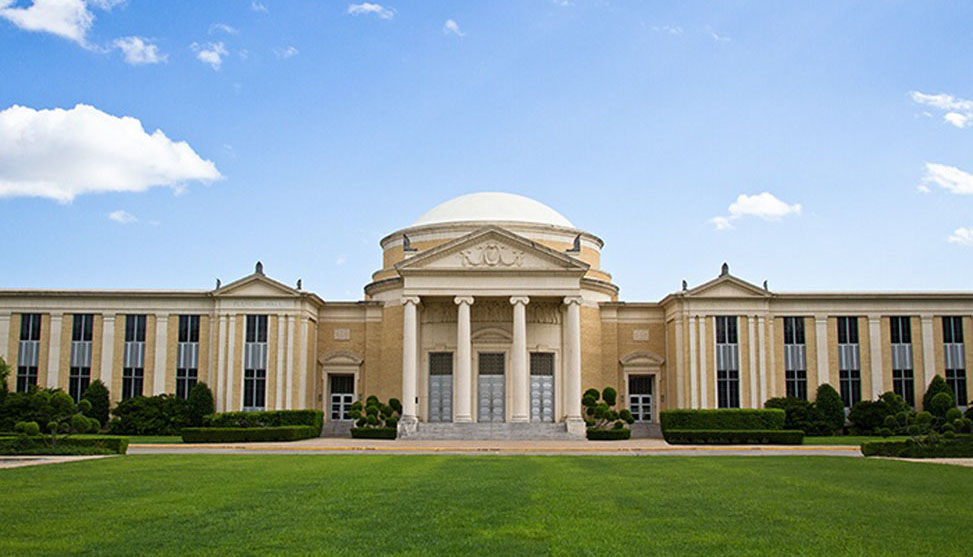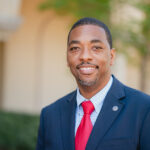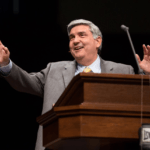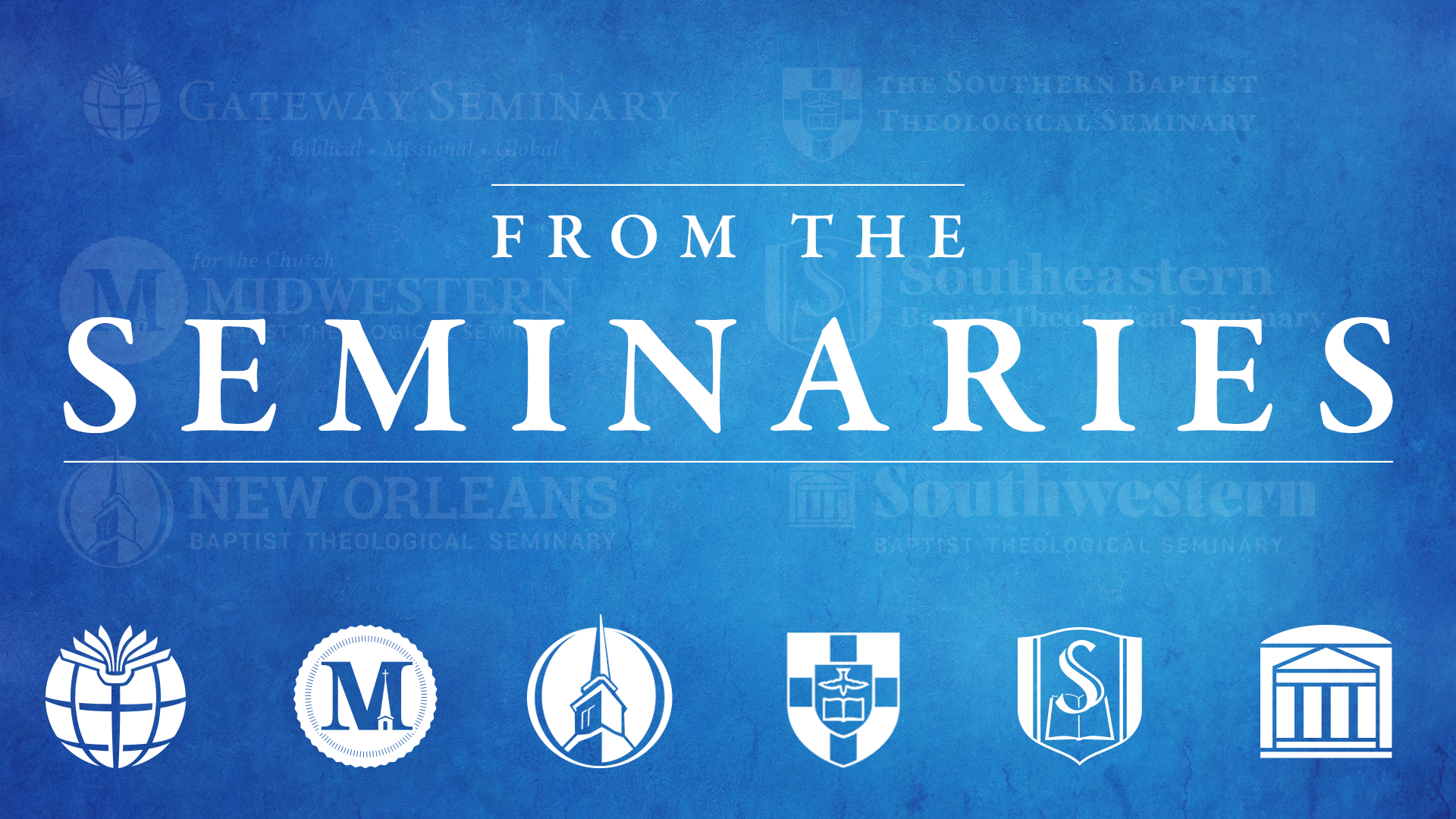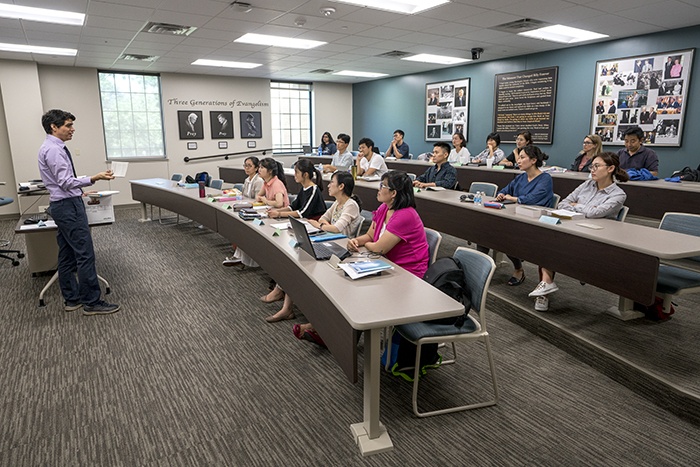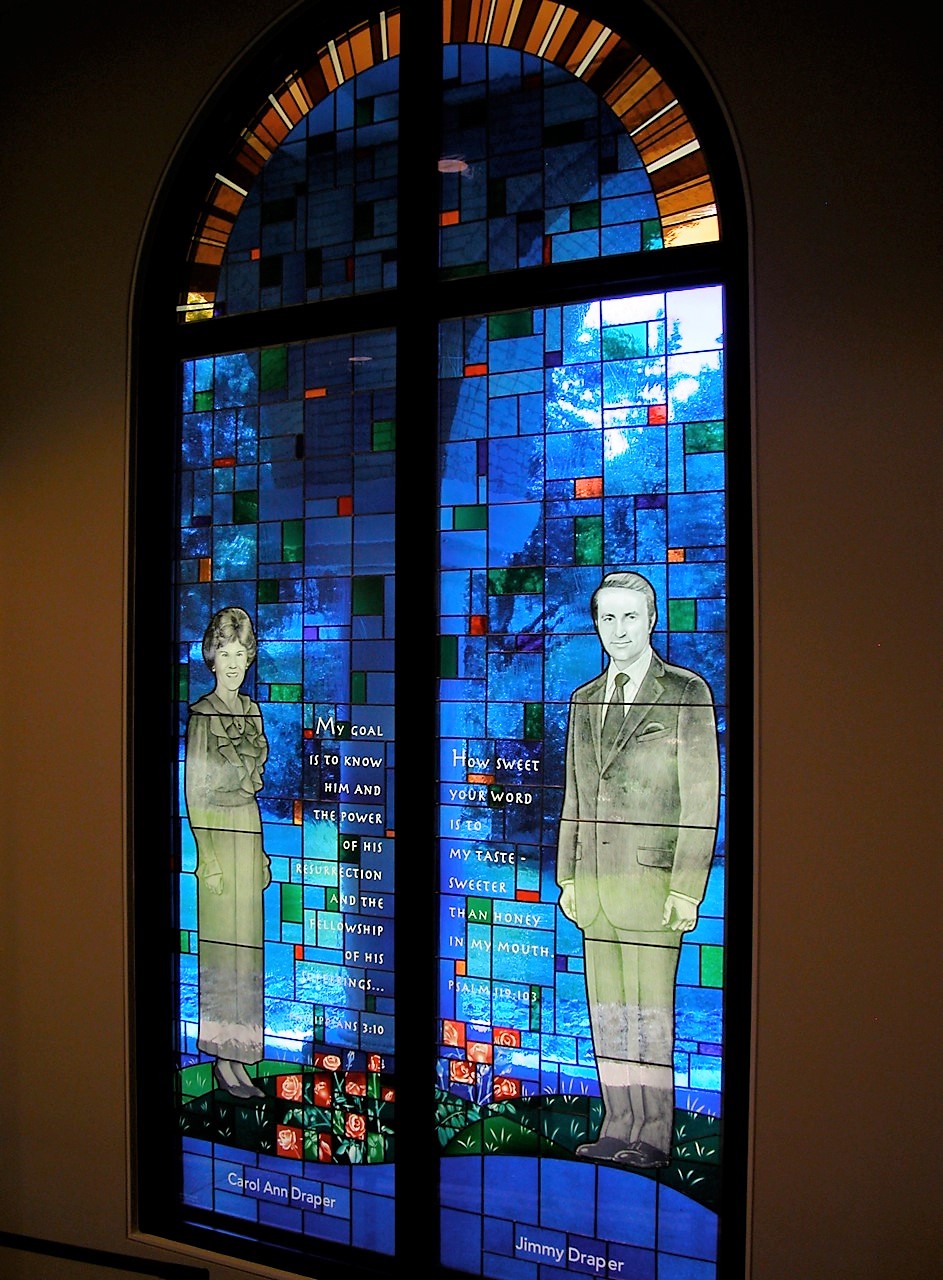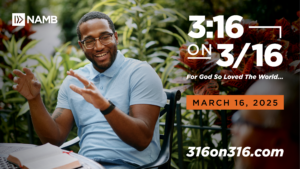
Seminary students can expect to face challenges in pursuing theological education, but heart failure at the age of 24 is not usually one of them.
As the son of a U.S. Army chaplain, Joshua Park does not know exactly where he calls home, having spent time living in California, North Carolina and even Korea. But much of his life has been spent in different Texas cities, eventually leading to his attending Baylor University for his undergraduate degree. Park is preparing to finish his Master of Divinity in biblical counseling at Southwestern Baptist Theological Seminary this December and plans to follow in his father’s footsteps in chaplaincy.
But during the summer of 2023, his ability to complete that degree was in question when he suddenly began to experience mysterious health problems.
Chris Shirley, dean of the Terry School of Educational Ministries, recalls meeting Park when he came to Southwestern as a student, saying they often met together in what became a mentoring relationship. Knowing about Park’s strong commitment to exercise and fitness, Shirley was surprised when Park first mentioned in August that he was not feeling well.
“I remember he came into my office, and he said, ‘I’m whipped all the time. I’m so tired,’” Shirley said, adding he asked Park some of the normal questions, looking for the cause: “Are you getting enough sleep? Yeah. Are you eating enough? Yeah.”
Park said he initially thought his health problems were a result of his exercise combined with the Texas heat. But when he found himself completely out of breath just walking from his car to the office, he realized it was something else.
As a chaplain candidate, Park is part of the U.S. Army Reserves, and the doctors of his unit suggested he go to the emergency room. This led to Park’s being in the hospital for two weeks for tests, treatment that did not seem to help, and finally the realization that his heart was failing. Doctors discovered Park’s heart was pumping only at about 15 percent on either side, instead of the needed 50 percent. This caused his heart to work too hard, leading to enlargement and failure.
“Think of like a 90-year-old man’s heart in my body,” said Park, who is now 25 years old. “That’s how bad it was.”
After being released from the hospital and cleared for travel, Park left the next day to join the rest of his family in Korea, where his grandfather’s health was also failing. But that visit turned into another month and a half in the hospital when he had another episode with his heart. The option of a heart transplant was raised by Korean doctors, but since Park is not a Korean citizen, they told him it could be years. All other options and treatments could cost hundreds of thousands of dollars.
But after waiting all those weeks in Korea, not knowing if he would survive, Park said things suddenly and remarkably came together as family, friends and his insurance through the Army came together to bring Park to San Antonio by air ambulance, then by ambulance to Dallas, where he was able to receive a left ventricular assist device (LVAD), a pump that circulates his blood while his heart rests and recovers.
“It was an amazing experience of just seeing how the grace of God, and how His sovereign will works,” Park said of making it back to the United States and getting the treatment he needed, all covered by insurance.
Prior to his health problems, Park said he can see now that God was preparing him, first by bringing him to Southwestern Seminary. Initially he had planned to join the military, but not as a chaplain or with any interest in being a pastor.
“I’m so thankful that God has allowed me to go [to Southwestern] and learn everything that I’ve learned so far, meet everyone that I’ve met,” Park said. “I feel like a lot of people would understand if I say, it’s always better when you just follow God’s plan. Everything … works into place. It’s almost kind of indescribable how it works, and … how beautiful God’s plan is and the sovereignty of it all.”
Even during his studies at Southwestern, Park continued to face situations that made him look to God for help.
“Before all this started happening, I had a lot of … life events happen,” Park said. “And I was kind of battling with anxiety, a lot of stress, a lot of fear that kind of made me turn towards God. I had a friend who gave me a book that really spoke … about the sovereignty of God, and kind of just placing my trust and hope in that. So that really set the stage, or the foundation for when this all started happening.”
While stuck in Korea, Park said he often thought back to the story of Job in the Old Testament, when the patriarch faced hardships but trusted God and did not complain. Park said he wanted to have that same mentality, even when there were times when he was not sure his heart would continue sustaining him from one minute to the next.
“There is a moment where I was kind of like, alright, you know, I’m just ready to come home,” Park said of his time in Korea and following. “If I die in the next few minutes, God, I’m sorry I didn’t do more for You, but I’d rather have this end. … I’m accepting that I’m going to die.”
He dealt with a “wave of emotions,” expressing to God feelings of trust, exhaustion, thankfulness and anxiety.
Shirley said he has noticed Park’s focus on the Lord and his good spirits, despite the health crisis and the future decisions he faces with a new way of life.
“The one thing that distinguishes him to me is his commitment to the Lord and his unwavering optimism,” Shirley said. “He’s just a very optimistic person. Even in the midst of all this; big old smile, laughing, humor. And not a humor to mask things, but a genuine spirit of the Lord about him.”
That optimism and faith was tried further when a July appointment with his doctor showed that his heart had not recovered in the eight months since he received the LVAD. Park said that likely means his heart will never recover and the pump is now a constant in his life as he faces a heart transplant at some point in his future.
“I was preparing for the worst, which happened,” Park said of this recent news, which he and his family had almost come to expect.
Doctors suggest he use the pump for as long as possible since he is still young and the pump, the most recent model, can last 10 to 15 years. But at some point, a heart transplant will be necessary, barring any new medical treatment or technology.
“Once I put a new heart in, I’m on a time limit,” he said. “Probably 10 years and then after that it’s done. … With a good match of a heart, it can be 15 to 20 years. That’s best-case scenario. Worst case is, after a few months, my body rejects it.”
Still, Park has confidence in his ultimate future.
“Part of me is ready,” he said about a possible future heart failure or a transplant, “because it means I’m closer to being with God. But at the same time there’s a lot I want to experience, a lot I want to do.”
Despite those future possibilities, Park remains focused on completing his current degree and using it, and his recent experiences, to counsel and help others. Working closely with Southwestern professors such as Shirley, Assistant Professor of Biblical Counseling Jonathan Okinaga, and others, Park has been able to enroll in his final courses and prepare to graduate in December.
“All the professors were willing to work with him to make sure everything got done,” Shirley said. “It all got worked out so that he could be at home, take online classes, and finish up his degree. And that’s what he’s been doing, continuing to press forward.”
With graduation approaching, Park now said he has been looking ahead to what God might have in store for him next. Because of his heart, becoming an Army chaplain is no longer an option. But after his experiences over the past year, he has opened his mind to other options as well.
“I know I wanted to do chaplaincy, because I really wanted to do biblical counseling,” Park said. “But now with all this, understanding what patients go through in a hospital, understanding the fear of dying in a hospital; part of me is thinking, maybe hospital chaplaincy.”
But Park said he is now open to the idea of serving in a church as well and maybe continuing his education further down the road.
“It’s not just people in the hospital who are going through anxiety and stress and all these issues,” Park said. “But also, being a pastor could really help.”
Shirley said when he talks with Park about the future, Park often speaks of his faith that the Lord will help him through the situation and work things out.
“He’s had to redesign his life again in the face of disappointment, yet still, in the end, with a smile,” Shirley said.
Since receiving the LVAD, Park said he has begun to recover from the ordeal that resulted in his losing 30 pounds due to about three months spent in hospitals. He recently has been able to return to some of his prior activities, including exercise and taking online classes and an eight-week program at the seminary to catch up and stay on track to graduate. Park said he feels like he has recovered to about 80 percent of his previous health.
But even while moving toward a regular way of life, Park said everything has to be adjusted because of the pump that keeps his heart going. That pump includes cords that attach to batteries and a controller that he carries with him constantly, along with backup batteries in a second bag anytime he leaves his home. The cord cannot get wet and has to be cared for to prevent infection since it attaches directly to his body. He also now has dietary restrictions and a number of medications he has to take.
“It keeps me stationary,” Park said of the pump. “It’s a lifestyle change. I can’t do the things I want to do whenever I want to.”
But despite its limitations, Park said he is grateful for the pump and the life it does allow him to live, even returning to physical activities such as soccer and exercise.
Park also expressed gratitude to all those who prayed for him during what became a year-long search for answers, and supported him whether through his GoFundMe page or other means of encouragement. While heart failure was not something he had ever expected or prepared for, Park said he does want God to use that experience and his life to impact others.
“I think right now, after all this happened, I’m just more open to what I should do for God, or what God is calling me to do,” Park said of following God’s plan instead of his own. “It’s probably a better way.”


